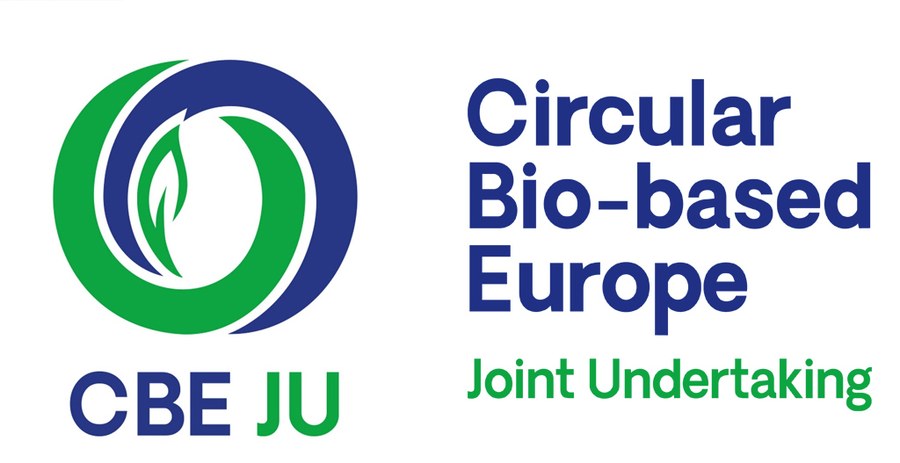
Bio-based materials and products for biodegradable in-soil applications
Expected outcomes
In line with the objectives of the Circular Economy and Zero Pollution Action Plan, and the EU Plastics Strategy and the recommendation in the Communication – EU policy framework on biobased, biodegradable and compostable plastics85 the successful proposals will facilitate the deployment of sustainable bio-based biodegradable materials and products for applications in soil. Successful proposals will also contribute to the implementation of the EU Bioeconomy Strategy and the updated EU Industrial Strategy. Moreover, successful proposals will deliver significant contribution to the objectives of the R&I Missions ‘A Soil Deal for Europe’, in particular objectives ‘Reduce soil pollution and enhance restoration’ and ‘Prevent erosion’, as well as Mission ‘Restore our Oceans and Waters by 2030’ in particular ‘Make the blue economy carbon-neutral and circular’ and ‘Prevent and eliminate pollution of our oceans, seas and waters’.
Project results should contribute to the following expected outcomes:
- Availability of safe and sustainable by design bio-based solutions aiming at zero waste and
zero pollution, with decreased environmental on soil, biodiversity and climate. - Contribution to industrial competitiveness and resource independence of bio-based value
chains in EU/EEA/EFTA countries and ACs. - Improved circularity and resource efficiency via practical application of circular
bioeconomy. - Social acceptance of circular bio-based solutions and products.
- Innovative manufacturing processes to enable the safe biodegradation of bio-based materials and products according with the environmental conditions and time frame for specific applications.
Scope
Some plastics applications such as those in agriculture, infrastructure or landscaping are intended to be used in the open environment. Plastic mulch films, for example, are used extensively within a range of arable and horticultural cropping settings to prevent evaporation of water from the soil, avoid fluctuations in soil temperature, protect the crops and increase their yield. Geotextiles and geomembranes find widespread application in landscaping, construction and roadworks to stabilise and improve mechanical properties of soil, collect and transport groundwater and prevent contamination between different kinds of soil. Additional plastics applications in agriculture include greenhouses, pheromones dispensers, clips, pots, etc. The improper or unintentional disposal of plastic products and their degradation may result in soil pollution and environmental contamination. While in some cases recovery from the environment for reuse or recycling would be feasible, for some applications it is either impossible or disproportionally expensive and biodegradable (in soil) alternatives may be preferable, provided that the products are able to meet technical performance requirements throughout their use.
Proposals under this topic should:
- Demonstrate and deploy innovative production processes for SSbD bio-based products for biodegradable88 -in- soil applications, addressing the problem of (micro)plastics release in soil and their further dispersion in runoff water. This topic focuses on products used in soil, for example mulch films, tarpaulins, geonets, geotextiles, geomembranes, etc. and plastics applications in agriculture, for example, greenhouses, pheromones dispensers, clips, pots etc; select one or more product categories, providing a justification of the selection based on the relevance of products in the actual market and/or on environmental considerations (e.g., the threats posed by the conventional non-biodegradable solutions for the sameapplications).
- The topic does not cover marine and aquatic applications as a main focus. However, spill over of the developed product streams towards other replication sectors (including marine/aquatic) can be considered, in order to widen market applications.
- Design the products for biodegradation in soil according to the environmental conditions and application timeframe, while ensuring technical performances meeting market requirements throughout the useful life of the product. Moreover, the topic also addresses eco-design and testing of reusability and/or recyclability depending on the final application(s) and use conditions.
- Demonstrate safe biodegradability of bio-based products designed for specific applications in open environments (soil) under ranges of physical/chemical environmental conditions, including extreme conditions (e.g., temperature, pH) where applicable. Safe biodegradability entails avoiding eco-toxicity, microplastic dispersion and any environmental impacts - from bio-based products including their additives and other components- on natural ecosystems and their services, including on the soil fertility, during and after degradation. All these aspects should be monitored and assessed, also in the phase of dispersion in runoff water.
- Perform validation trials of the developed bio-based products with the involvement of end users (for example, in case of applications for agriculture are selected, primary sector should be involved).
- Develop a proposal for appropriate labelling of products when applicable and provide clear instructions on their use and on disposal options after use. This task should include the consultation of targeted stakeholders, e.g., end users. Training of end users should also be envisaged.
- Contribute with recommendations related to standards for biodegradability in soil.
- Include a task for projects funded under this topic to collaborate and align the proposals for appropriate labelling, and the recommendations related to standards.
- Include a task to integrate assessment of the demonstrated bio-based products based on the safe and sustainable by design (SSbD) framework, developed by the European Commission, for assessing the safety and sustainability of chemicals and materials Under this context, projects are expected to contribute with and develop recommendations that can advance further the application of the SSbD framework.
Proposals should seek for links and complementarities and avoid overlaps with past, ongoing andupcoming EU funded projects, including those funded under H2020, HEU , the BBI JU and CBEJU , and the Missions ‘A Soil Deal for Europe’ and ’Restore our oceans and water’. Collaborationamong projects from the same topic are encouraged.
General Information
In line with the objectives of the Circular Economy and Zero Pollution Action Plan, and the EU Plastics Strategy and the recommendation in the Communication – EU policy framework on biobased, biodegradable and compostable plastics85 the successful proposals will facilitate the deployment of sustainable bio-based biodegradable materials and products for applications in soil. Successful proposals will also contribute to the implementation of the EU Bioeconomy Strategy and the updated EU Industrial Strategy. Moreover, successful proposals will deliver significant contribution to the objectives of the R&I Missions ‘A Soil Deal for Europe’, in particular objectives ‘Reduce soil pollution and enhance restoration’ and ‘Prevent erosion’, as well as Mission ‘Restore our Oceans and Waters by 2030’ in particular ‘Make the blue economy carbon-neutral and circular’ and ‘Prevent and eliminate pollution of our oceans, seas and waters’.
Project results should contribute to the following expected outcomes:
• Availability of safe and sustainable by design bio-based solutions aiming at zero waste and
zero pollution, with decreased environmental on soil, biodiversity and climate.
• Contribution to industrial competitiveness and resource independence of bio-based value
chains in EU/EEA/EFTA countries and ACs.
• Improved circularity and resource efficiency via practical application of circular
bioeconomy.
• Social acceptance of circular bio-based solutions and products.
• Innovative manufacturing processes to enable the safe biodegradation of bio-based
materials and products according with the environmental conditions and time frame for
specific applications.






Bio-based materials and products for biodegradable in-soil applications 0 reviews
Login to Write Your ReviewThere are no reviews yet.